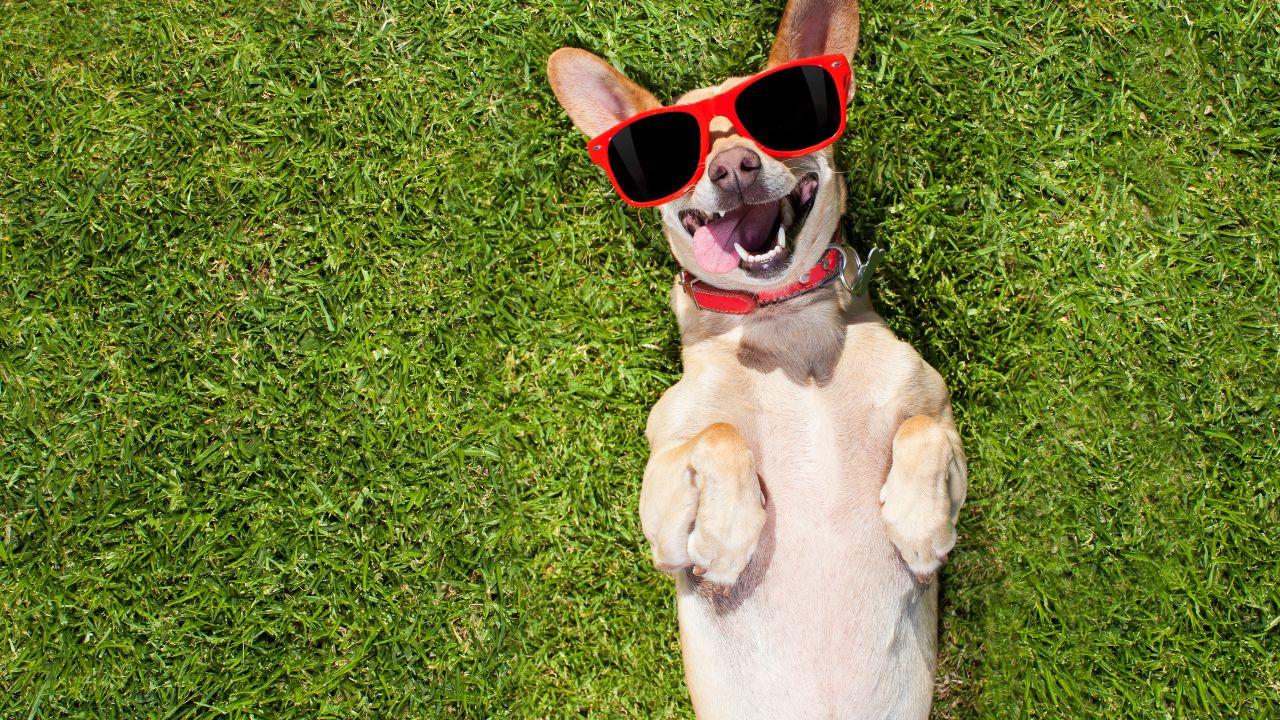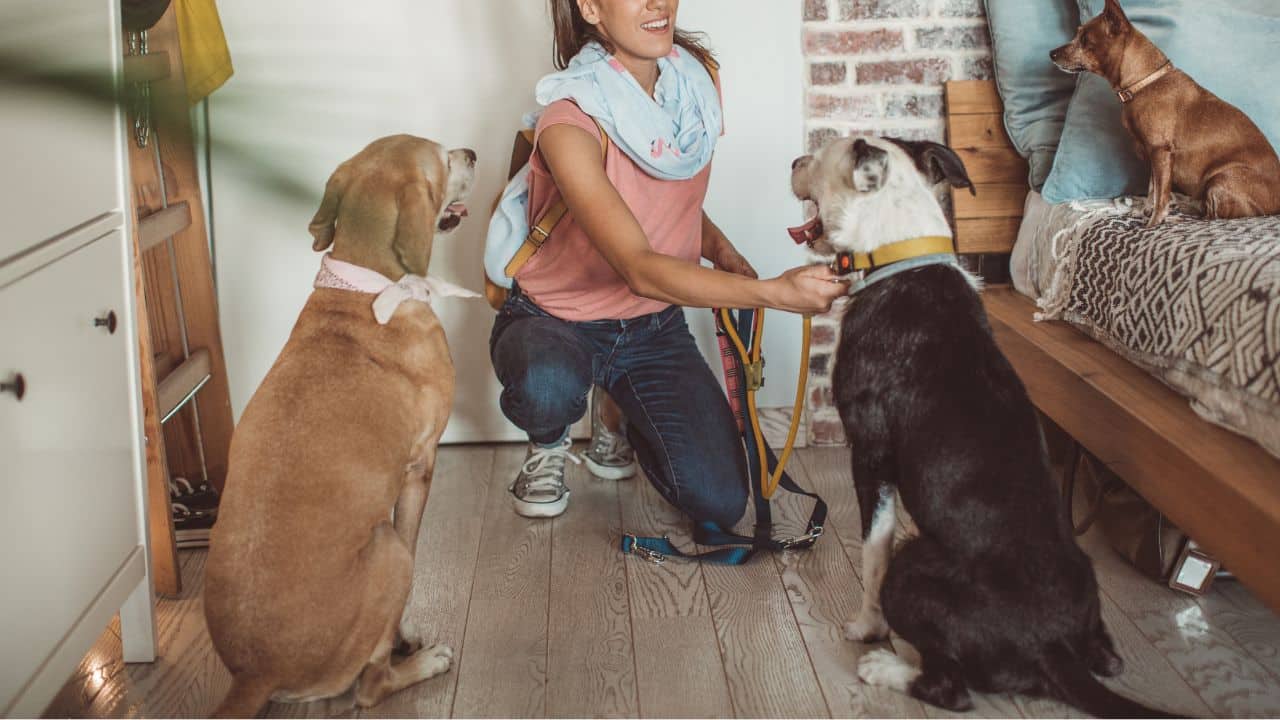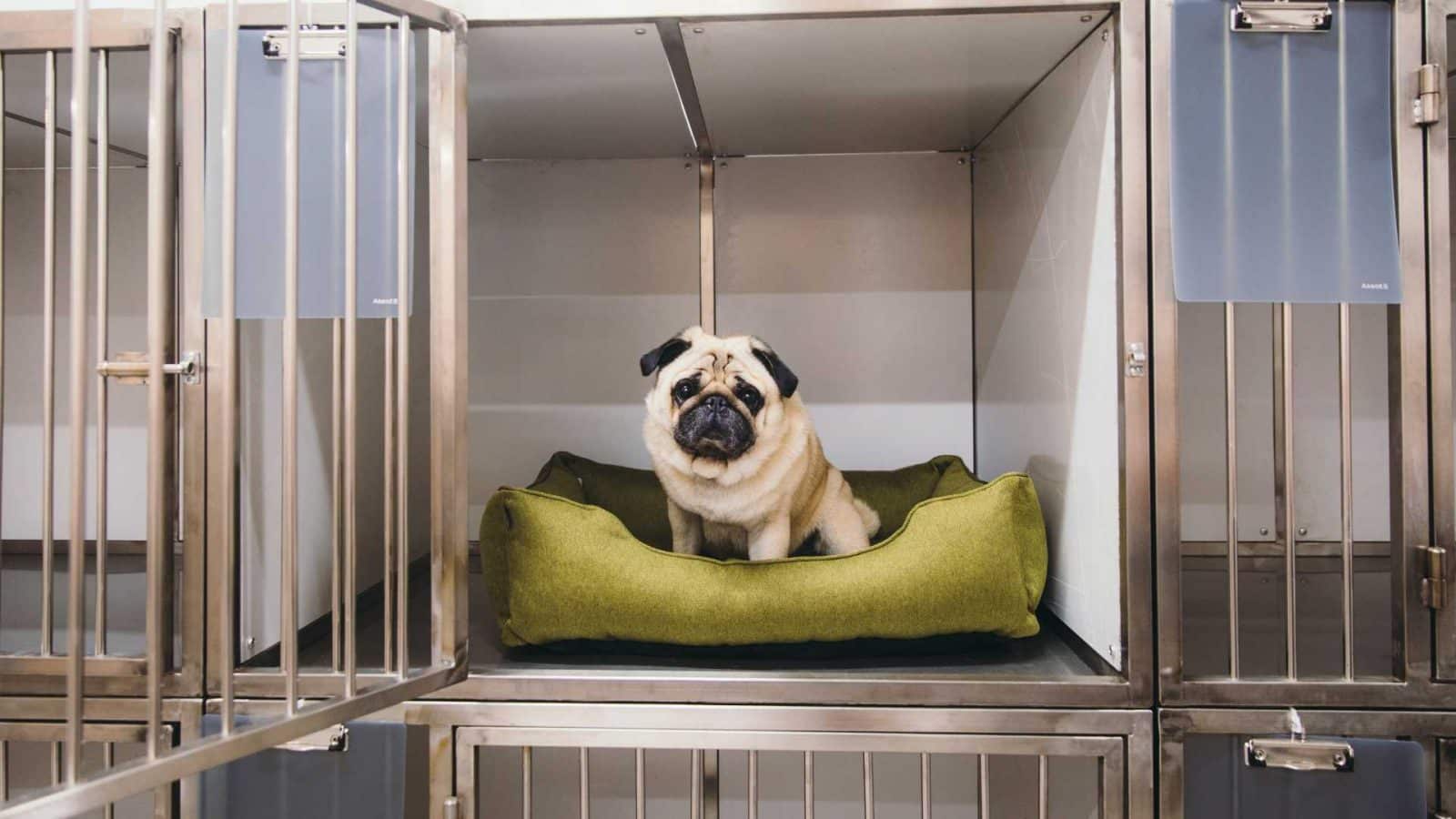Blog Dog Hotels vs. Pet-sitting: Which One is the Best for You and Your Pet
Dog hotels vs. pet-sitting is a significant decision that every pet owner faces at some point.
Your choice can greatly impact your furry friend’s well-being and comfort while you’re away.
It’s crucial to weigh the pros and cons of each option, considering factors such as cost, convenience, and your pet’s specific needs.
In exploring Dog hotels vs. pet-sitting further, we’ll delve into what these services entail, their benefits, and drawbacks – arming you with valuable insights to make an informed decision.
Table of Contents:
- Understanding the Concept of a Dog Hotel
- Understanding Pet-Sitting
- Advantages of Dog Hotels
- Disadvantages of Dog Hotels
- Advantages of Pet-Sitting
- Understanding the Drawbacks of Pet-Sitting
- FAQs- Dog Hotels vs. Pet-Sitting
- Conclusion
Understanding the Concept of a Dog Hotel

A dog hotel, often called a pet boarding facility, is designed for dogs. It offers comprehensive services, including overnight stays and daycare, far exceeding those provided by traditional kennels or animal shelters.
The major difference between a dog hotel and other pet care forms is its approach toward catering to canine needs. These establishments are not just about providing basic amenities but aim to offer luxury experiences tailored exclusively for our furry friends.
An Array of Services Offered
Dog hotels typically have many pets and provide comfortable sleeping arrangements ranging from simple crates to luxurious suites with plush bedding and toys. They also offer daycare services, where pets can socialize under professional supervision during their owner’s absence.
In addition, most dog hotels include grooming in their service list, ensuring your beloved pets return home fresh-smelling after their stay – something you might miss out on when opting for personal pet sitters or live-in pet sitter options.
Professional Staff: The Key Differentiator
One key aspect of setting apart these specialized boarding facilities from regular ones is the presence of trained staff members with expertise in handling various aspects of canine behavior and health care. They ensure each guest receives close attention throughout the day, promptly addressing signs of distress, kennel cough symptoms, or general discomfort due to unfamiliar surroundings.
Beyond veterinary care essentials, they’re skilled at keeping dogs entertained too. From organizing stimulating games and activities to even extending one-on-one training sessions if required, your beloved pets receive top-notch attention, always making them feel right at home away from home.
Understanding Pet-Sitting

At its core, pet-sitting is a service where an individual or company cares for pets in their own homes while the pet owners are away. Animals of all shapes and sizes, from traditional cats and dogs to more exotic species, can be cared for by pet sitters.
The Responsibilities of a Pet Sitter
A professional pet sitter has several key duties, such as feeding pets on schedule, ensuring they have fresh water available constantly, and providing adequate exercise and playtime opportunities. They also handle administering any necessary medication under guidance from veterinary professionals.
Beyond these tasks, some sitters offer additional services like grooming, dog walking, or one-on-one attention, which can be particularly helpful for busy pet owners who may not always find time to do it themselves.
Variations in Pet Sitting Services
The extent of home pet sitting varies widely depending on what the owner needs. Some people prefer hiring a live-in personal pet sitter who stays at their home 24/7 during their absence. This option provides constant companionship, reducing stress associated with separation anxiety for beloved pets.
Alternatively, there are drop-in visits where the sitter checks multiple times throughout the day, taking care of feedings, walks, etc., perfect if you’re just out for a few hours but want to ensure that your furry friend isn’t left alone too long.
Finding A Trustworthy Professional
- To find a reliable and trustworthy professional, check references and background before hiring anyone.
- Ensure they are insured and bonded to cover potential damages or accidents during the service period.
- Schedule a meet and greet session to see how you and the pet sitter interact and establish rapport early in the relationship stage.
Advantages of Dog Hotels

Dog hotels like those provided by Very Important Paws offer many benefits BEYOND mere pet boarding facilities.
Safety Ensured in Pet Boarding Facilities
The primary benefit dog hotels offer is the assurance of safety and protection for your furry friends. These establishments are equipped with robust security measures designed to prevent any unpreventable incidents involving pet boarding facilities from occurring.
In addition, trained kennel staff vigilantly monitor dogs round-the-clock, ensuring they remain safe throughout their stay. Furthermore, immediate attention can be availed to anxious animals for any health issues arising during this period thanks to readily accessible or on-site veterinary care services.
Additional Services Beyond Boarding Kennels
- Grooming: Keeping your canine companion clean and fresh-smelling is vital, especially after active playtimes or long walks within the hotel premises – a service professionally handled by expert groomers at these facilities.
- Training: The availability of professional trainers presents an opportunity for personalized training programs tailored specifically to each dog’s needs while you’re away from home. This helps improve behavioral issues, benefiting you and your furry friend.
Disadvantages of Dog Hotels

Dog hotels like Very Important Paws offer various services for your beloved pets. However, they do come with certain drawbacks that pet owners should consider.
1. High-Cost Implications
The financial commitment to choosing a dog hotel can be slightly higher than a sitter. The cost generally depends on the length of stay and additional services like grooming or training sessions offered by these boarding facilities. This option could be expensive for those who own multiple pets compared to alternatives like personal pet sitter arrangements.
2. Potential Health Concerns
Beyond the monetary aspects, health risks are involved in most pet boarding facilities, despite maintaining fresh-smelling facility standards. Close proximity between dogs may increase the chances of disease transmission, such as kennel cough, even though most professional boarding kennels like VIP require vaccination records before admitting any furry friend into their care.
3. Anxiety-Inducing Environments
Your dog’s emotional well-being is another factor worth considering when opting for a dog hotel service over live-in pet sitters. Some dogs might experience stress or anxiety being away from home, which could negatively impact their mental and physical health, regardless of efforts made by trained boarding kennel staff to create comfortable surroundings within the boarding facility.
Advantages of Pet-Sitting

Pet-sitting has become a favored alternative to dog hotels, presenting numerous benefits. Staying in their home while you’re away is the primary benefit of pet-sitting.
A Home-Based Setting for Your Beloved Pets
Your furry friend can maintain their daily routine without adjusting to new surroundings or coping with the stress from being placed in an unfamiliar environment. This sense of familiarity and continuity in surroundings often makes pets feel less anxious.
An Affordable Solution
In comparison with pet boarding facilities, pet-sitting services are generally more cost-effective. Hiring a pet sitter can be an economic decision for so many animal owners, particularly those with multiple animals in their household.
Focused Care and Attention
Engaging a professional personal pet sitter ensures your cherished companion receives focused care and attention during your absence. Unlike kennel staff at boarding facilities tasked with caring for several animals simultaneously, a live-in personal will concentrate solely on catering to your animal’s needs.
Limited Health Risks
Providing in-home care also reduces exposure risks associated with common illnesses like kennel cough, which are unpreventable in traditional boarding establishments. With one-on-one interaction provided by the dedicated service provider, there’s a significantly reduced risk of contracting diseases from other animals compared to communal living spaces in most conventional cat or dog hotel environments.
Understanding the Drawbacks of Pet-Sitting

Pet-sitting may seem convenient for your pet while you’re away. It’s essential to be conscious of the potential drawbacks of this selection.
1. The Gap in Professional Expertise
A major downside is often the lack of formal training among personal pet sitters. Unlike the staff at many pet boarding facilities, who are usually trained professionals, an individual or live-in sitter might not have adequate skills to handle emergencies or identify health issues early on.
2. Inconsistent Care Standards
Varying quality levels among independent pet sitters pose another concern for pet parents. While some professional pet sitters go above and beyond in their service, others may fall short, causing undue stress during your time apart from your beloved pets.
3. Limited Scope Of Services Offered By Sitters
- Grooming: Regular grooming sessions help keep our furry friends healthy and fresh-smelling, but these are not typically offered by most private sitters unless at additional costs.
- Dog Training Programs: These programs contribute significantly to maintaining discipline and mental stimulation for dogs, which, unfortunately, are not within a typical sitter’s scope.
- Veterinary Care: Immediate access to veterinary care, like that available at kennels, ensures timely intervention when needed, which might not be feasible with home-based sitting arrangements.
Considering these factors will help you decide what suits best your and your four-legged family member’s needs while apart.
FAQs- Dog Hotels vs. Pet-Sitting
What are the disadvantages of pet hotels?
Pet hotels can be costly and may cause stress for some pets due to unfamiliar surroundings. They also require booking, especially during peak seasons.
What is the difference between dog boarding and pet sitting?
Dog boarding involves your pet staying at a facility, while pet sitting means someone cares for your pet in your home.
Why do people need pet hotels?
Pet owners use hotels or cannot care for their pets temporarily when they travel. It ensures professional care and safety for their furry friends.
What do dogs think when being boarded?
Dogs’ reactions vary based on temperament and experience. Some enjoy socializing with other dogs, while others might feel sensitive or anxious animals are in new environments.
Conclusion
Choosing between dog hotels and pet-sitting is no small task. It’s a decision that demands careful consideration of your furry friend’s unique needs.
Dog hotels offer the perks of professional care, extra services like grooming and training, all in a secure environment. But they can be costly and may not suit pets uncomfortable with new surroundings.
Pet-sitting provides the comfort of in-home dog sitting for your pet while you’re away but requires trusting someone else to provide care in your absence. And it might lack additional beneficial services for other pets.
The decision between pet-sitting and other options ultimately comes down to what best suits you and your furry friend.
At Very Important Paws, we understand these concerns deeply. That’s why our range of services is designed keeping every aspect of canine well-being in mind – from boarding facilities that feel like second homes for many pet owners to expert grooming sessions ensuring tip-top health!
If you’re still grappling with the ‘dog hotel vs. pet-sitting conundrum or want top-notch service for your beloved pooch, Contact Us today at Very Important Paws.

